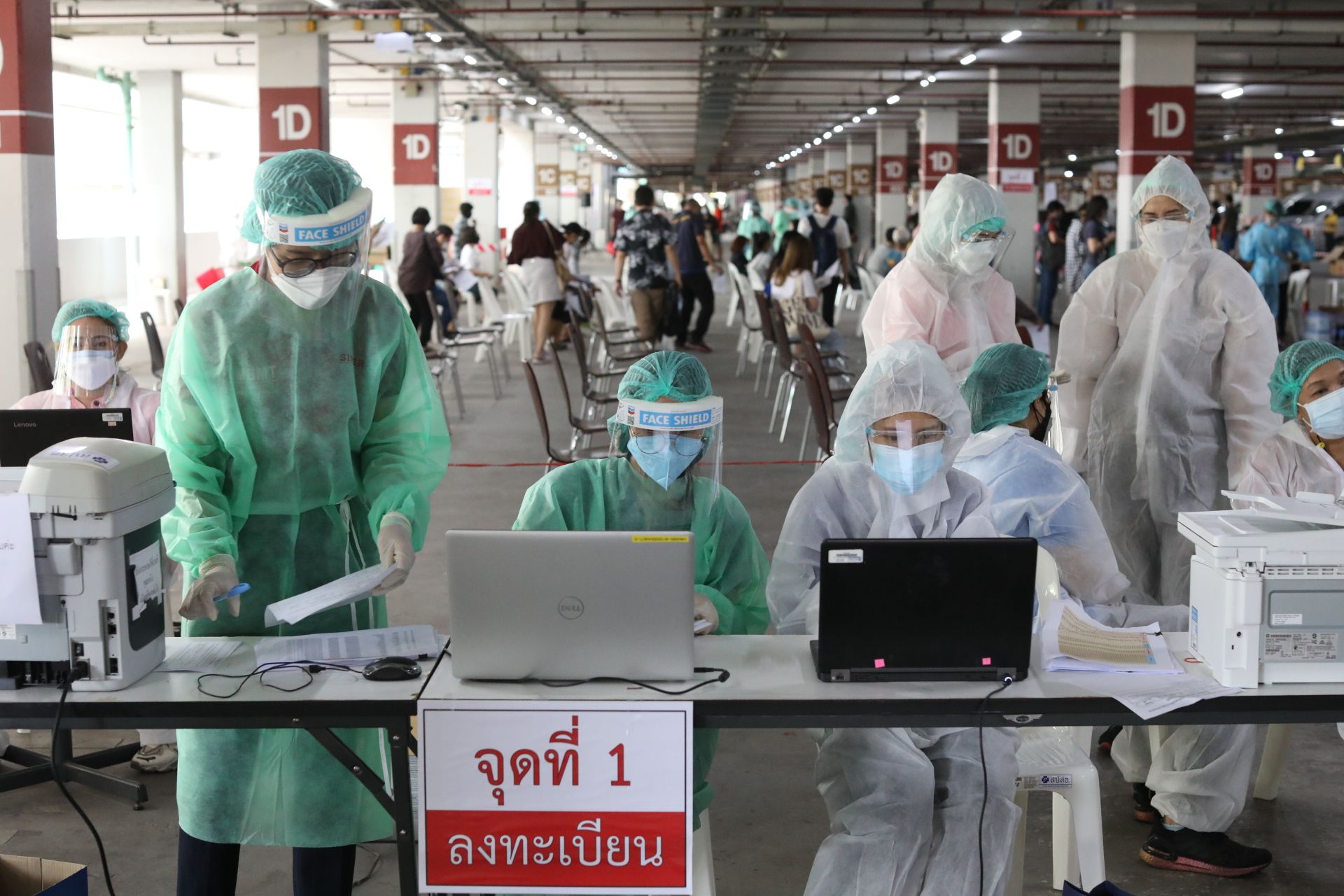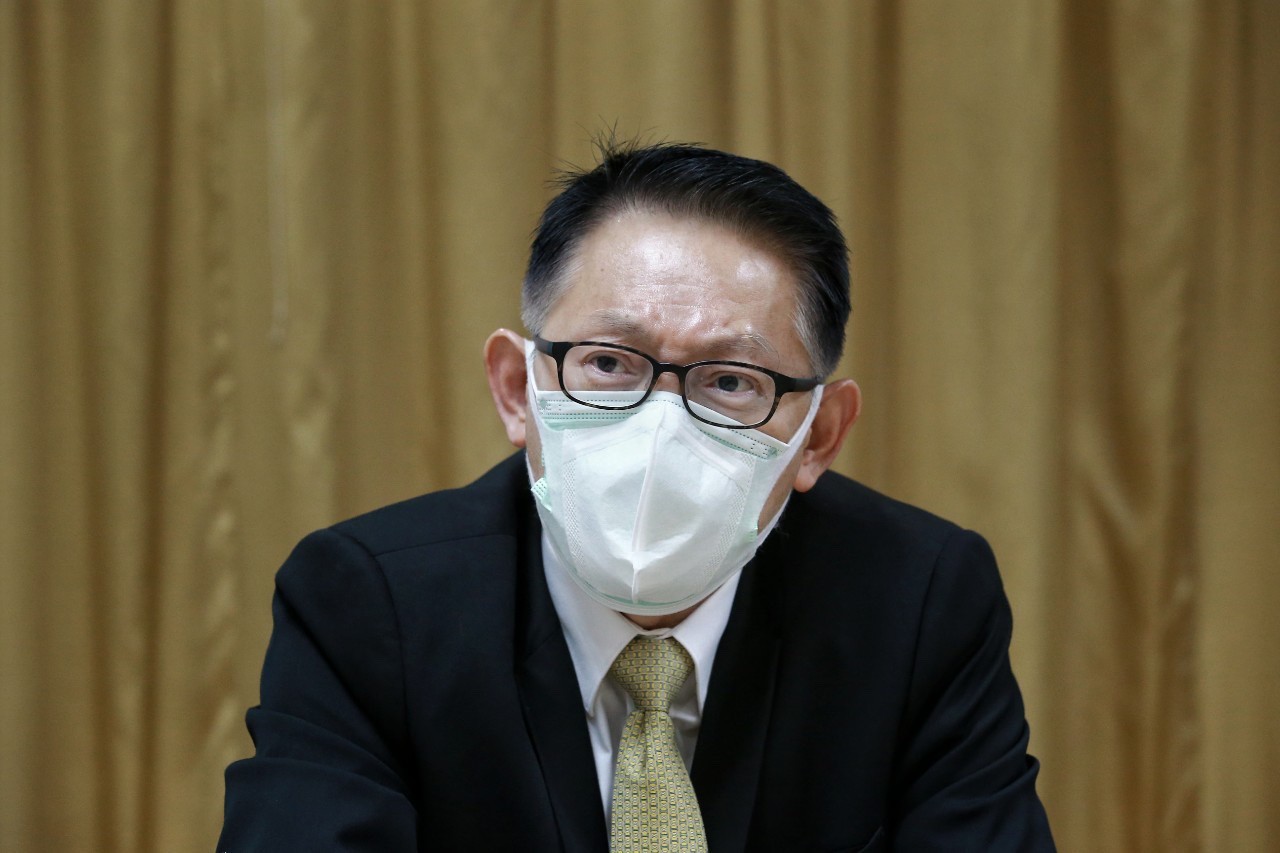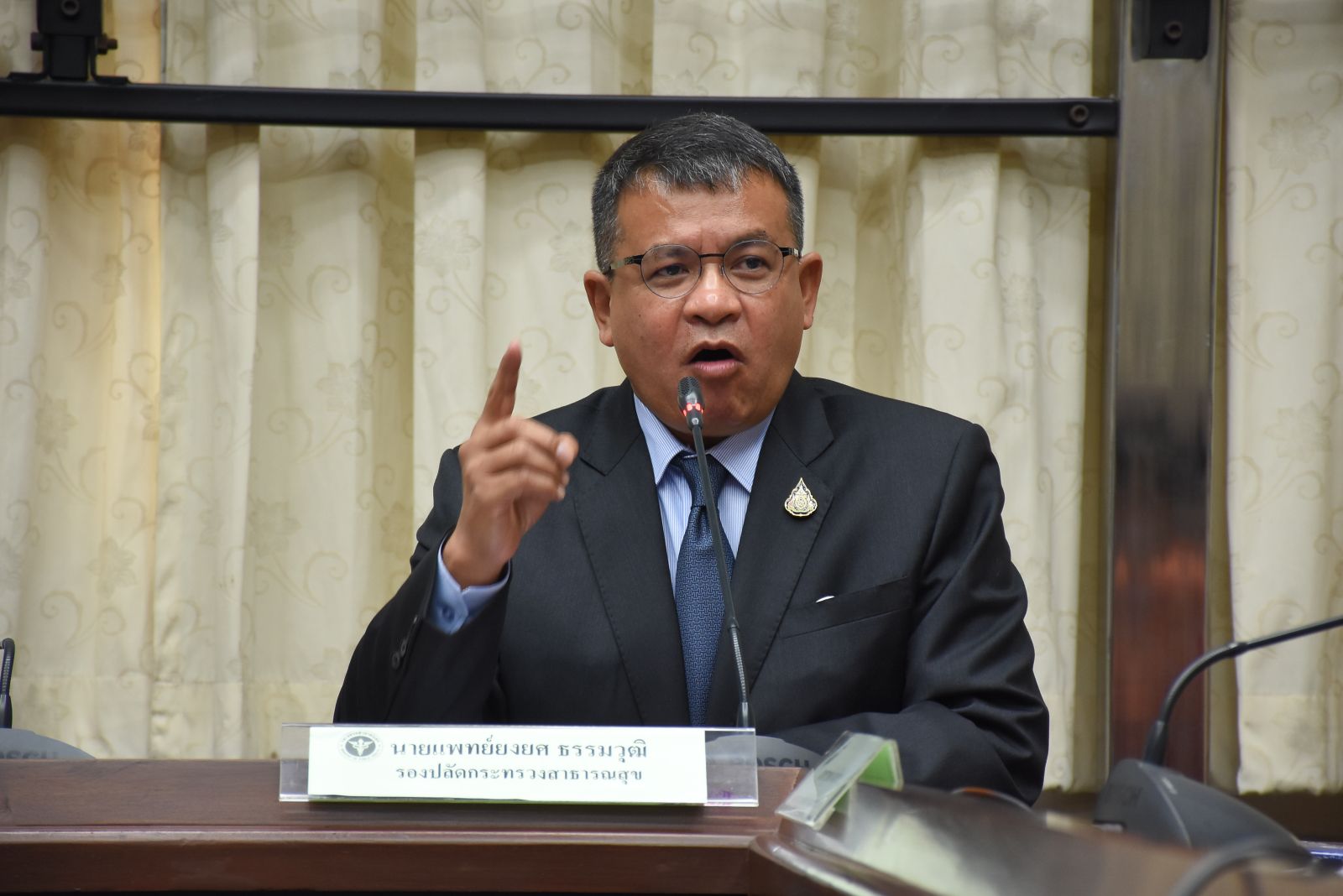
- Home
- DescriptionNews
NHSO launches supported home and community isolation, ramps up rapid COVID-19 tests

NHSO launches supported home and community isolation,
ramps up rapid COVID-19 tests
As hospitals in Bangkok are being overwhelmed by a rising number of COVID-19 patients with severe symptoms of the disease, the vast majority of new infections are found to have mild or no symptoms and do not actually need immediate hospitalisation.
They can instead go into isolation at home and may not need to be hospitalised if they receive proper care arranged to be carried out right at their homes with the help of and advice by local healthcare providers.
This way these COVID-19 patients won’t have to keep waiting for a hospital bed to become available for them, which seems to be highly unlikely during this grave crisis, while hospitals will be able to save their beds for patients who really need to be admitted for life-saving treatment.
That’s a reason why the NHSO has launched Home and Community Isolation Programme, starting July 12, 2021 when more than 2,000 COVID-19 infected people calling the NHSO’s hotline No.1330 were being wait-listed for hospital bed locating.
As of July 10, 2021 a total of 2,468 people were put on the waiting list for hospital admission.

Currently, about 80% of COVID-19 infected patients are either asymptomatic or only have mild symptoms, which are suitable for receiving care at home, said Dr Jadej Thammatach-aree, secretary-general of the NHSO.
The NSHO has 204 medical clinics under its primary care network in Bangkok, which altogether are capable of taking care of up to 40,000 COVID-19 patients in the so-called Green Group (with no or mild symptoms), he said.
“With these Green Group patients receiving primary care at home, hospitals will be able to keep their beds for other patients who have moderate to severe symptoms of COVID-19,” he said.
As for the people who are confirmed COVID-19 and want to return home in the other provinces. They may call the NHSO’s hotline No.1330 for arranging a transfer service whose costs will be covered by the NHSO.
“Arranging primary care for COVID-19 patients at home or in their communities is now being treated as a priority as the number of new infections surges,” said Dr Jadej.
“We aren’t simply leaving you at home. We have a proper healthcare system to facilitate this home-based care programme. We have medical clinics in your areas to follow up on your condition and make sure more help is always at hand if needed,” he said.
COVID-19 patients taking part in the Home and Community Isolation Programme are assured a medical clinic in the NHSO’s primary care network will contact them within 48 hours after joining, which marks the beginning of the home- or community- based care.
For those whose houses aren’t suitable for conducting home isolation, other places in their communities which are more suitable such as a temple or school building will be designated as an isolation venue instead.
A thermometer, a pulse oximeter, and herbal medicines made from green chiretta (Andrographis paniculata) will also be delivered to the patients right at their homes, while a medical doctor will be following up on their condition through a telehealth service that is conducted twice a day.
These patients won’t have to worry about food either as three meals will be delivered to their homes every day free of charge during the home isolation.
And in case their condition worsens, these medical clinics will immediately coordinate a transfer of the patients from their homes to hospitals to where they can be admitted for treatment, said Dr Jadej.
And in the event these patients still have to wait for hospital beds, Favipiravir will be promptly delivered to their homes for use to stabilise their condition until they get a hospital bed, he said.

“The HI (Home Isolation) system, however, isn’t a quick fix for all problems associated with COVID-19. It will gradually pay off. It will gradually help improve the hospital bed shortage situation,” said Dr Yongyos Thammawuth, a deputy permanent secretary for public health.
Prior to the launch of the Home and Community Isolation Programme, a pilot phase of it had already been carried out on 300 COVID-19 patients and proven successful, said Dr Somsak Akksilp, director-general of the Department of Medical Services.
The costs of healthcare services arranged by medical clinics under the NHSO’s primary care network for this isolation programme are covered by the NHSO that has already issued a guideline on the reimbursement of these costs, said Dr Jadej.
Along with the home- and community-based care programme for COVID-19 patients, a mass COVID-19 testing campaign using rapid antigen test kits was also launched on July 12, 2021 as ordered by Deputy Prime Minister and Public Health Minister Anutin Charnvirakul.
In this new campaign, the NHSO aims to test between 10,000 and 12,000 people per day for COVID-19. And because the rapid test kit is capable of giving a test result within 30 minutes, people who test positive for COVID-19 will immediately included into the Home and Community Isolation Programme.
Mr Anutin has ordered the mass COVID-19 testing campaign to be carried out in response to growing demand for COVID-19 tests while the outbreak situation in Bangkok intensifies, said Dr Jadej.
The new COVID-19 testing campaign is being carried out in cooperation with Institute for Urban Disease Control and Prevention and Faculty of Medical Technology at Mahidol University. Initially, this campaign will be run for between one and two weeks.
In the beginning, the COVID-19 testing campaign was carried out at three sites, namely Thupatemi Royal Thai Air Force Sports Stadium in Lam Luk Ka district of Pathum Thani, Rajamangala National Stadium in Bang Kapi district of Bangkok and the first floor car park of Building B at the Government Complex on Chaengwatthana Road.
Later from July 14, the COVID-19 testing campaign began also at a fourth site, the football pitch of the Anti Aircraft Artillery Division in Dusit district of Bangkok.
For those who test negative for COVID-19, they may be advised to go into self quarantine for 14 days because by the time they get tested, the amount of the virus in their bodies may not be high enough to be detected by the rapid antigen test kit, said Dr Jadej.

